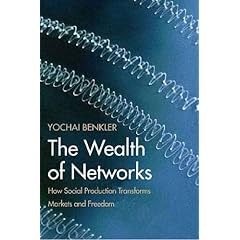It’s time for another post on the OzDMCA – that is, the forthcoming Australian law implementing Article 17.4.7 of the Australia-US Free Trade Agreement – an article based very closely on the (in)famous US law, the DMCA. I’m prompted to write by a recent Slashdot thread on this, as well as the recent Linux Australia campaign seeking to highlight the dangers of a DMCA-style law in Australia. The Linux Australia pages have a general explanation of the issues on DVDs (see iownmydvds.org here), and on some of the issues in music (see iownmymusic.org here).
I’m also prompted by the fact that it is now July, 2006, and we have not seen any exposure draft of the legislation. Given the timeline, I think we can only assume that either (a) the Department have decided to consult only with some limited set of stakeholders, or (b) that any consultation is going to be extremely brief.
Now, as I’ve said numerous times before (see my submission, 2 years ago, to the Senate Select Committee, and my submission, last year, to the LACA Inquiry) – anti-circumvention law is hard. It also has really strong potential to have nasty effects if implemented badly. And the risks of bad implementation are high, because the AUSFTA text is really problematic – it has a structure that has some ‘lamentable and inexcusable’ flaws (the quote is from LACA).
I’ve been wondering for some time whether we need to enact laws that look like the DMCA. I think there are areas where the AUSFTA text does have space to do things that are sensible.
So in this post, I’m going to outline two things Australia could do in implementing the OzDMCA, which would reduce its bad effects. (more…)

